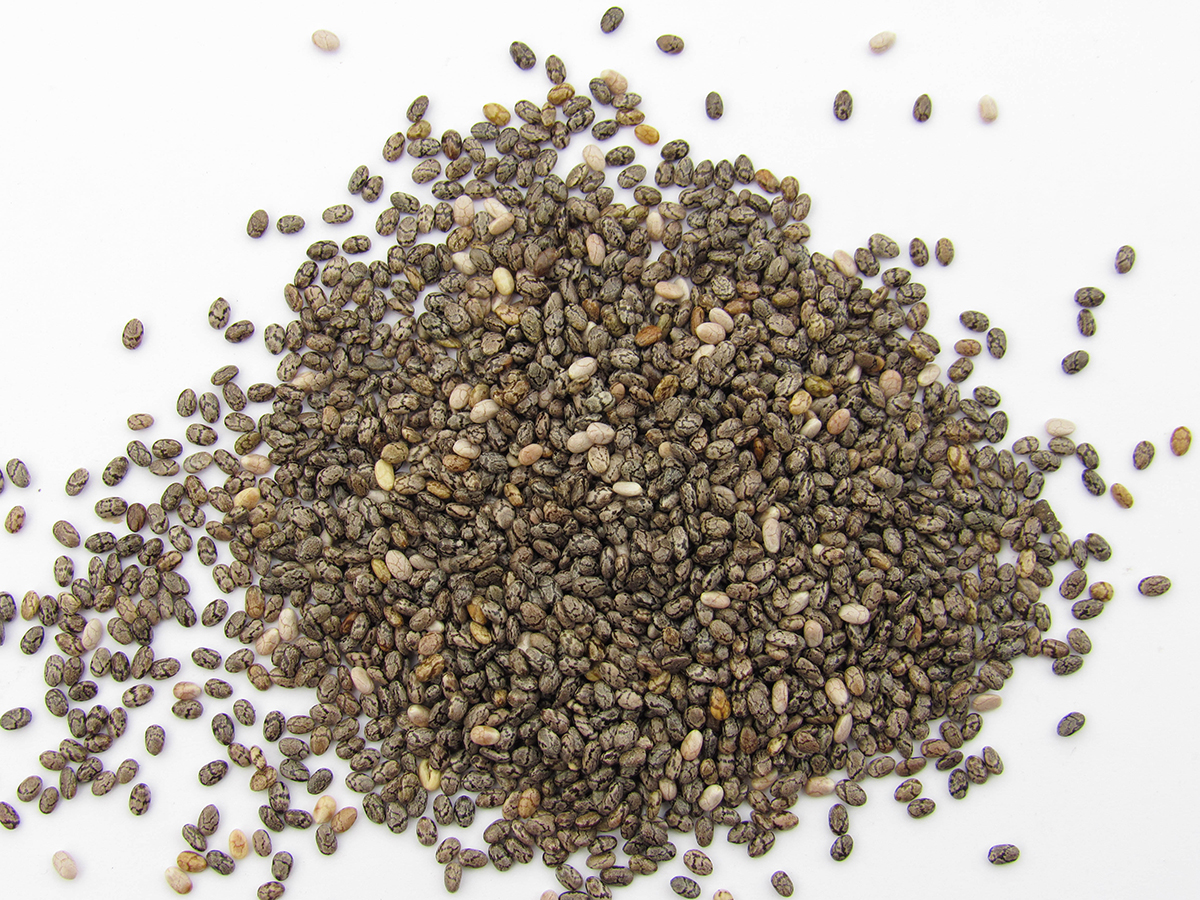When it comes to equine nutrition, there’s a lot more to consider than just hay. Many horse owners are turning to natural supplements to enhance their horse’s health and performance, and one such superfood gaining popularity is chia seeds. Chia seeds aren’t just a trendy health food for humans; they offer a wide range of health benefits for horses as well. In this article, we’ll explore why chia seeds are becoming a staple in equine diets and how they can benefit your four-legged friend.
Rich in Omega-3 Fatty Acids: Omega-3 fatty acids are essential for maintaining overall health in horses. They play a crucial role in reducing inflammation, supporting cardiovascular health, and promoting a shiny coat. Chia seeds are one of the richest plant sources of omega-3 fatty acids, making them an excellent addition to your horse’s diet. Chia contains 32-39%oil. Two-thirds of chia oil is omega-3 essential fatty acid (polyunsaturated) with only one-third omega-6. This is the ideal ratio.
Improved Joint Health: Horses, especially those in demanding disciplines like dressage, jumping reining, or barrel racing, can be prone to joint issues. Chia seeds contain alpha-linolenic acid (ALA), a type of omega-3 fatty acid that has been shown to reduce joint inflammation and support joint health. Incorporating chia seeds into your horse’s diet can help keep their joints supple and pain-free.
Excellent Source of Fiber: Fiber is crucial for healthy digestion in horses. Chia seeds are rich in soluble fiber, at 27.6 grams of fiber for every 100 grams of seed, which helps regulate bowel movements and prevent digestive issues like colic. The mucilaginous properties of chia seeds create a soothing gel-like substance when mixed with water, which can help prevent dehydration during hot weather.
Sand Clearing: Chia is hydrophilic, also known as water-attracting and absorbing. Once the seeds become wet in the horse’s gut, they become gelatinous, thought to help clear sand as they move through the digestive tract due to the increased volume during intestinal transit.
Chia: mucilage gel increases in volume by 12x.
Psyllium: mucilage gel increases in volume by 10x.
Flax: mucilage gel increases in volume by 6x.
(Facts taken from EquineChia)
Hydration Support: Staying properly hydrated is essential for equine health and especially gut health. Chia seeds can assist in maintaining adequate hydration levels. When soaked in water, chia seeds form a gel-like substance that holds water effectively. This gel can be added to your horse’s feed to help them stay hydrated during strenuous activities or in hot weather.
Balanced Nutrition: Chia seeds are a nutritional powerhouse, providing a wide array of vitamins and minerals, including calcium, phosphorus, magnesium, potassium, iron, zinc, and copper, not to mention the significant antioxidant properties within the seeds. These minerals are vital for maintaining strong bones, proper muscle function, and overall well-being in horses.
Weight Management: For horses struggling with weight issues, chia seeds can be a valuable addition to their diet. The high fiber content in chia seeds can help promote a feeling of fullness, reducing the risk of overeating. Additionally, the healthy fats in chia seeds can provide a calorie source for underweight horses.
Easy to Incorporate: Adding chia seeds to your horse’s diet is simple. You can either feed them dry, mix them into their regular grain, or create a chia gel by soaking the seeds in water. Start with small quantities and gradually increase as your horse gets accustomed to this new addition.
As a natural and easily incorporable supplement, chia seeds are an excellent choice for horse owners looking to enhance their equine companion’s overall well-being and performance. Always consult with a veterinarian or equine nutritionist before making significant dietary changes for your horse to ensure that chia seeds are a suitable addition to their diet.






Leave a Reply
You must be logged in to post a comment.